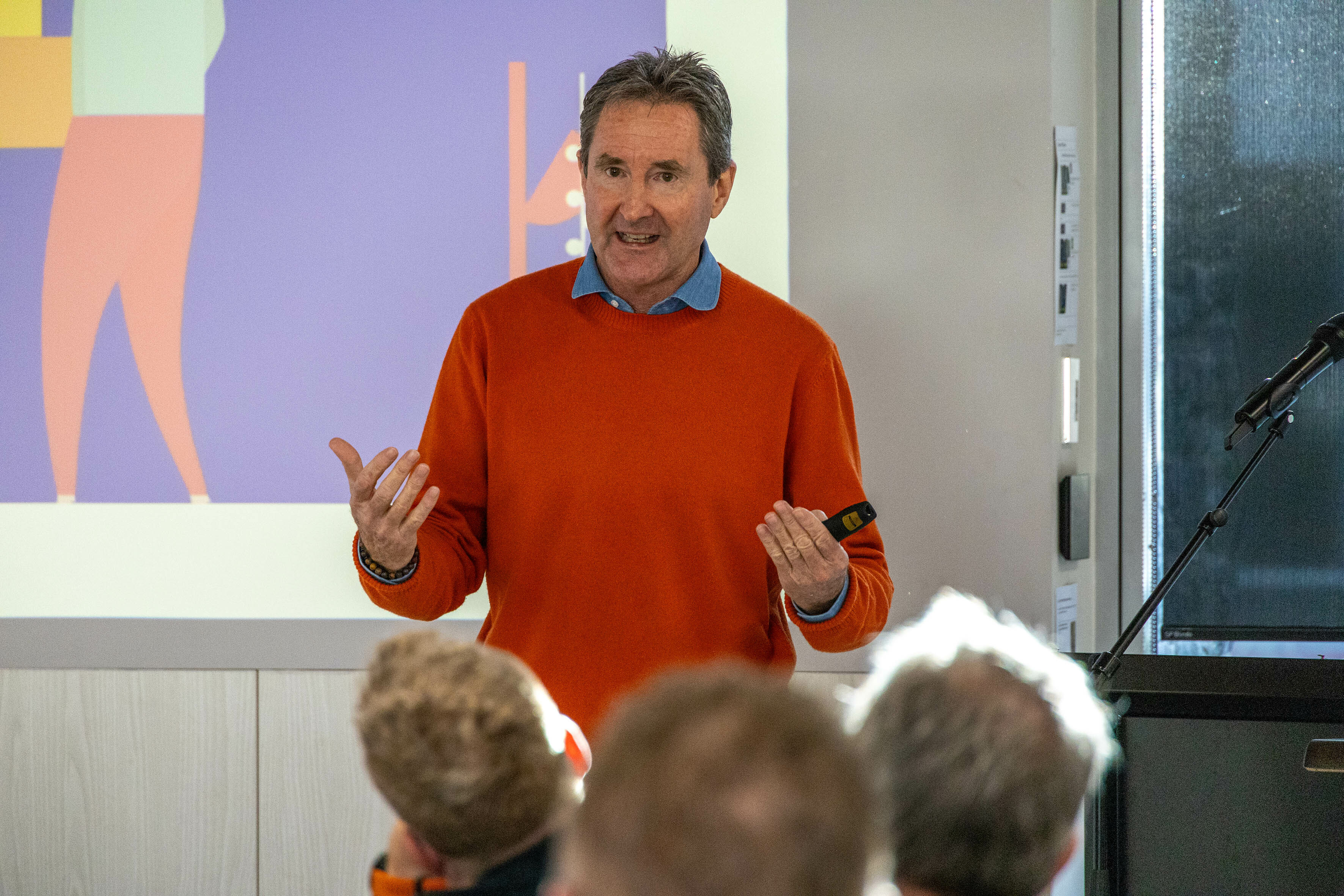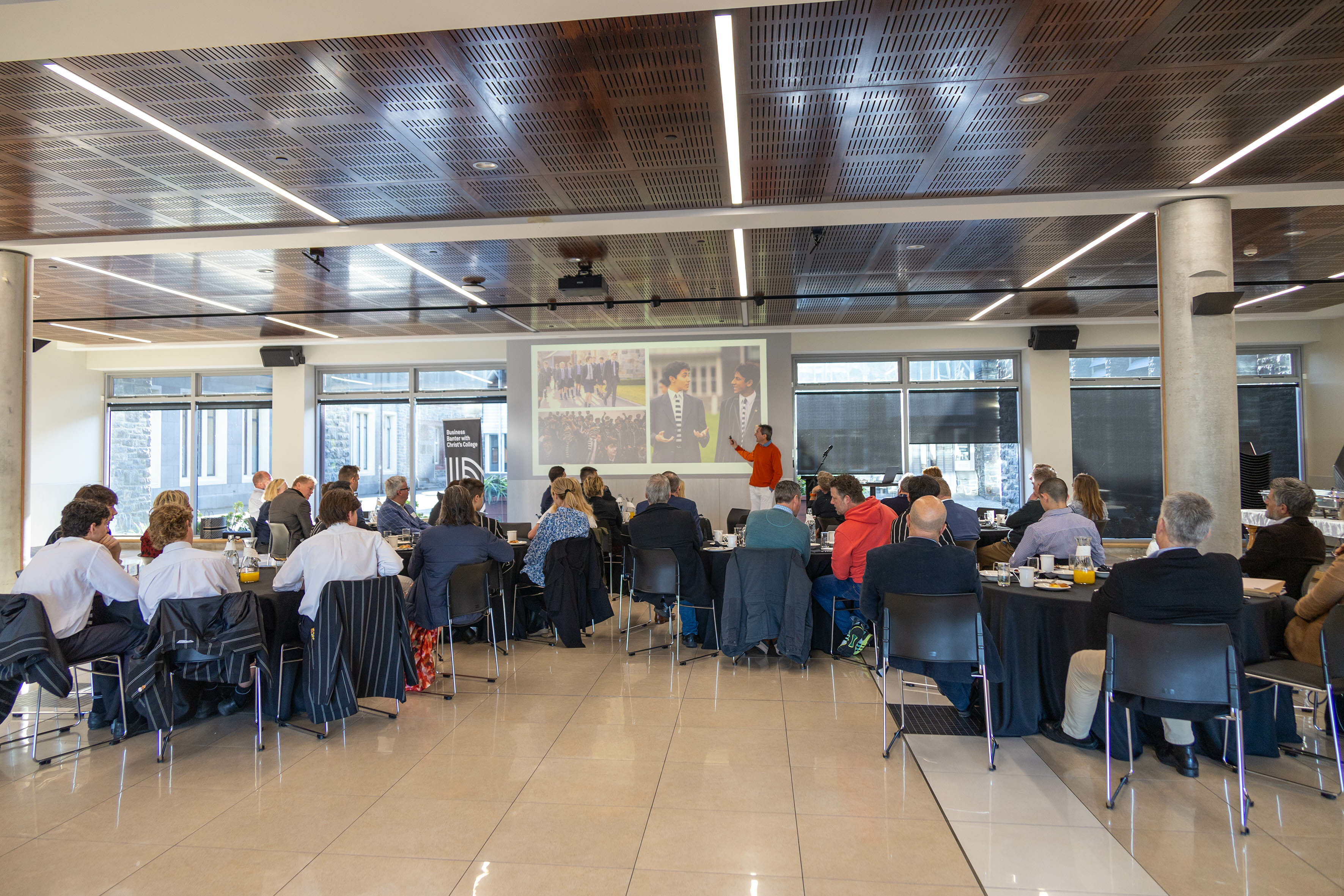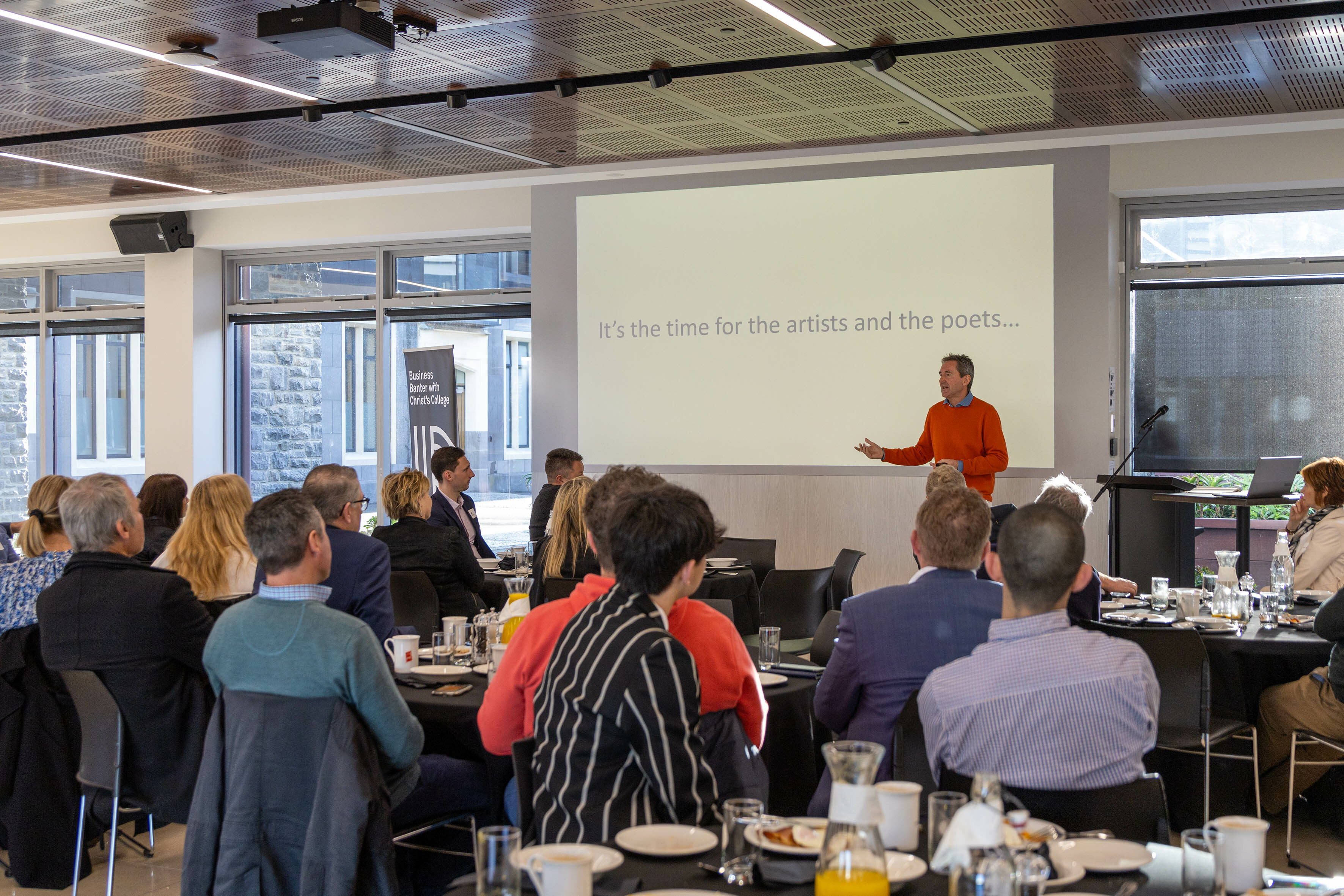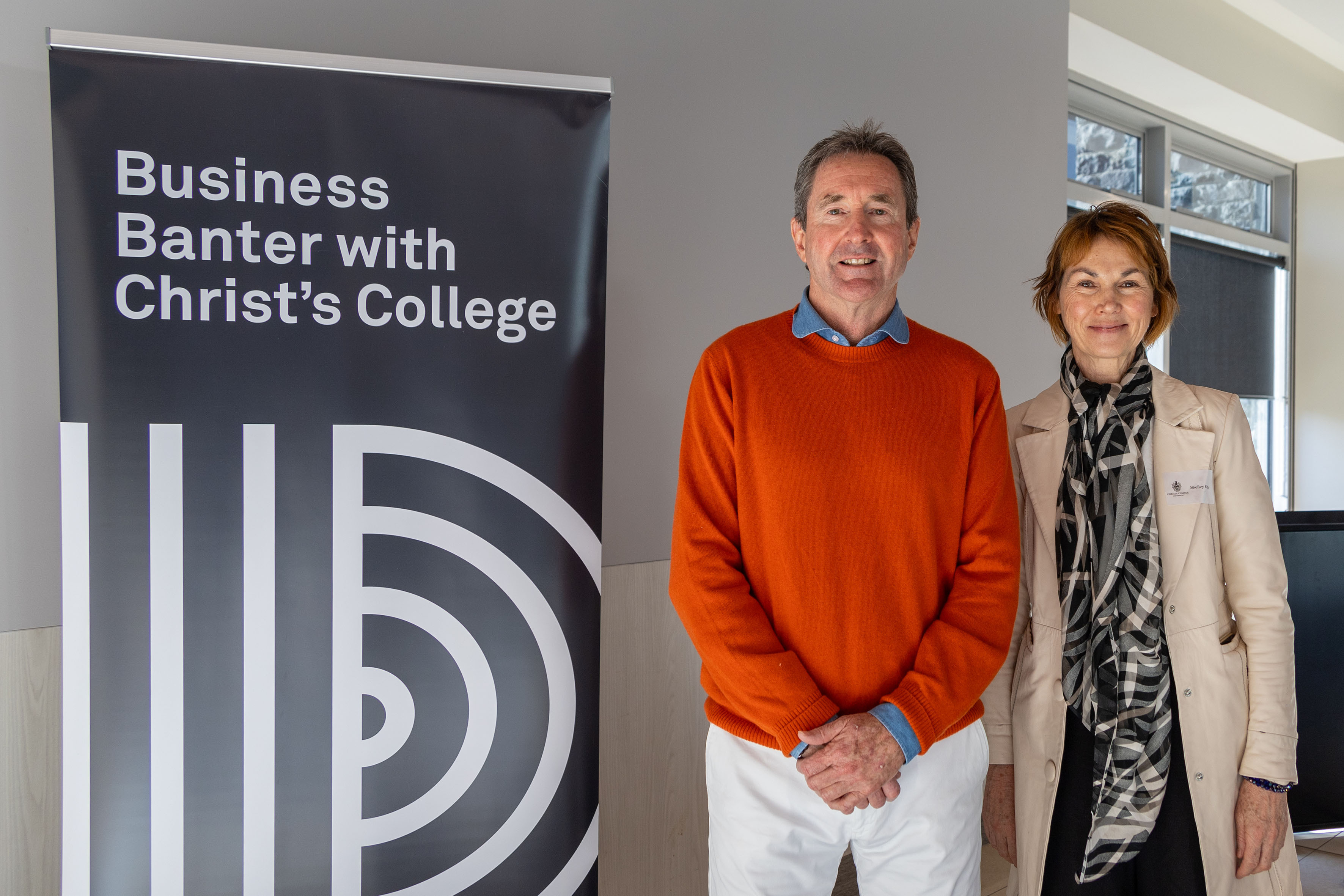A dyed-in-the-wool belief in transformative change
16 Oct 2023
John Brakenridge – the man behind one of New Zealand’s most remarkable brand rebirths – believes that aspiration and enabling transformative change are core to creating a flourishing environment for New Zealand business.
A fibre and food industry innovator and champion, John cites preparation for the “necessity of transformative change”, and understanding the role of behavioural and softer sciences in “embedding change and adapting to opportunities” as the country’s biggest challenges.
Speaking at Business Banter with Christ’s College, the co-founder and former chief executive of the New Zealand Merino Company has shared his insights – and “provocations” – while focusing on the need for “transformative change, wealth generation, and human-centred design” to empower and benefit the wider community.

He believes the nation needs to be “prepared for a more agile approach to education” to enable that change, valuing an “ambidextrous” attitude that places “equal weighting between the STEM side and the softer elements of arts and behavioural sciences”.
John highlights the value of a collective desire to make the most of the country’s neurodiverse talents and natural resources and realise “how much money is being left on the table” when on-selling products rather than reaping the full benefits.
In tandem, he is the driving force behind Te Hono – a partnership between the leaders of food and fibre sector companies, iwi, and government agencies. It aims to strengthen relationships “by linking to the land and connecting to the world” while supporting New Zealand to be “a global exemplar – economically, environmentally, and socially”.
Having steered wool to the aspirational image of a luxury merino brand, John continues to grow that concept of a ‘must-have’, overwhelmingly superior product that is both functional and reflects the best of the natural environment.

Today, he signals the need for the “maturing of the country, where we better celebrate what we do and what we produce”.
“We need to bring in the sophistication required to target the types of markets – with our stories and our brands – that reward our country and then can bring about the economic, social, and environmental necessities,” John explains. “This is not about generating wealth for the sake of wealth. It is about generating wealth so that we can ensure that New Zealand moves up to much higher rankings and that, as a consequence, we have the capacity and incentives for what needs to happen socially and environmentally.”
With New Zealand Merino, John took up the challenge of resetting the wool industry mindset nearly 30 years ago, prodding the growers to move from volume to added value.
He credits that “more open” systems approach to merino – rather than a transactional approach – with ensuring that more money goes back to the farmers.
“The farmers then have the capacity to employ more people or pay more or do more on their properties around the guardianship of the land. Philosophically, the more wealth you have within a country, the more spending there will be and there is the multiplier effect of that spending that flows through to the broader economy.”

He adds that regeneration is a very important element of that success.
“If the market has got us into rampant consumerism and fast fashion, the market can get us out of it because consumers will seek out products that are robust. Fundamental changes – by way of rules and government legislative change and the establishment of the litigation funds – will call out those brands that rely on superficial ‘green-washing’.
“However, the brands with the greatest substance will be rewarded, and so, too, their value chains. It is a huge opportunity for New Zealand. We need to have the systems and ability to capture the premiums and bring them back to incentivise the people to undertake the various changes. We cannot expect one sector of our community to continue to change and take on more compliance if we are not prepared to reward those people.”
Always open to change, John now aims to share those many insights of his innovative international journey, having launched the Brakenridge Impact Group to “work with entities that want to be aspirational and inspirational” and enable greater “disruption by design”.
Delving into the behavioural sciences, John promotes “transformative thinking to deliver transformative solutions” and takes every opportunity to share the ‘how’ of “bringing about transformative change”.

